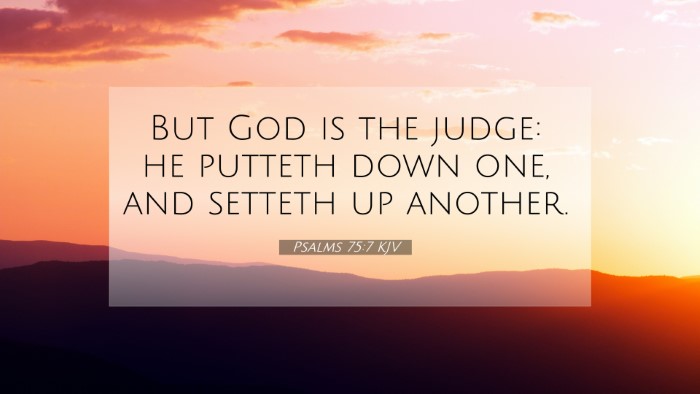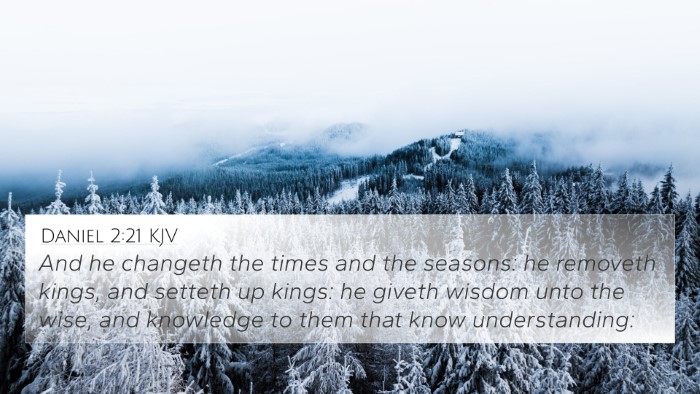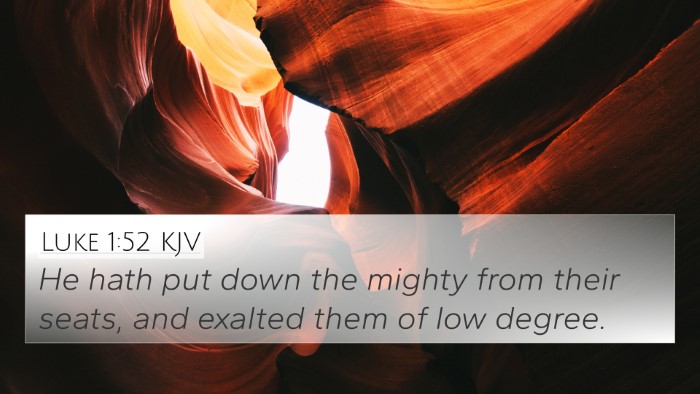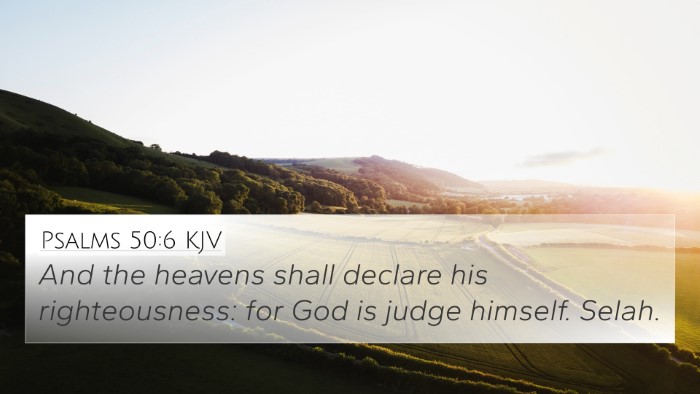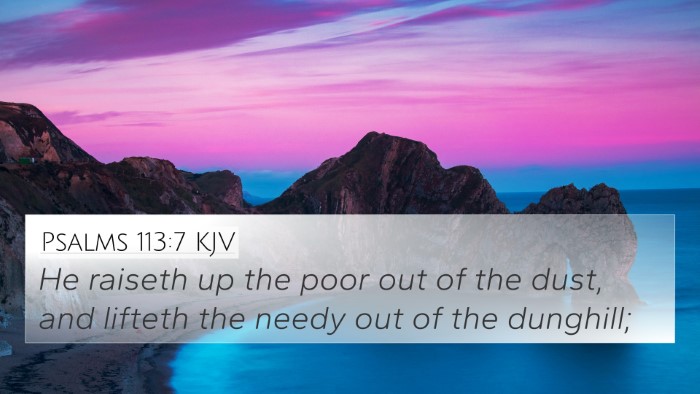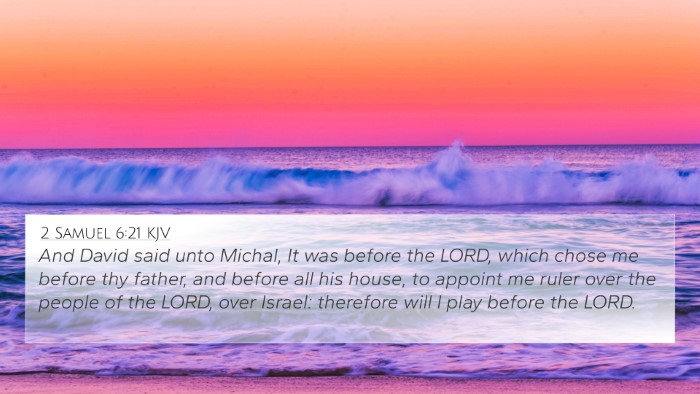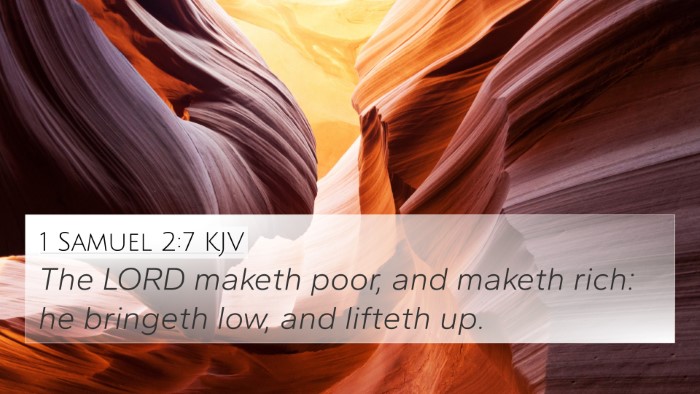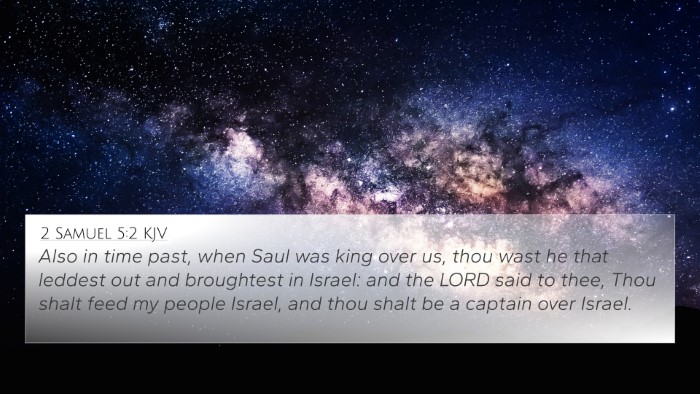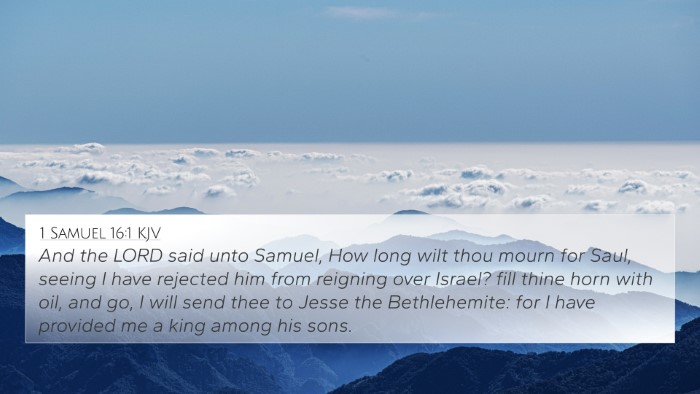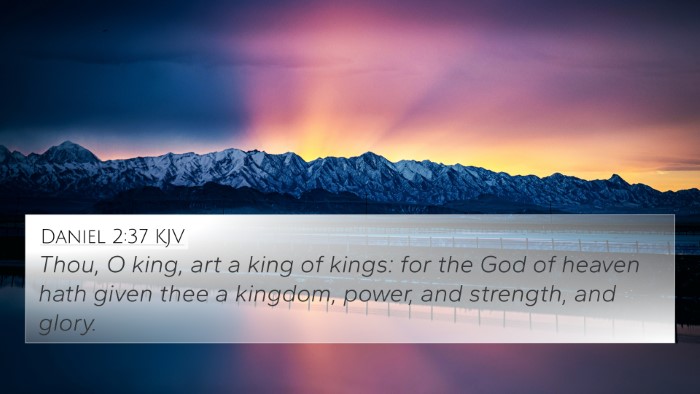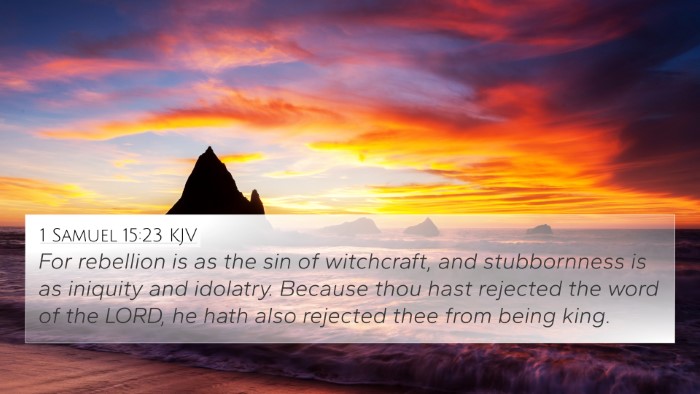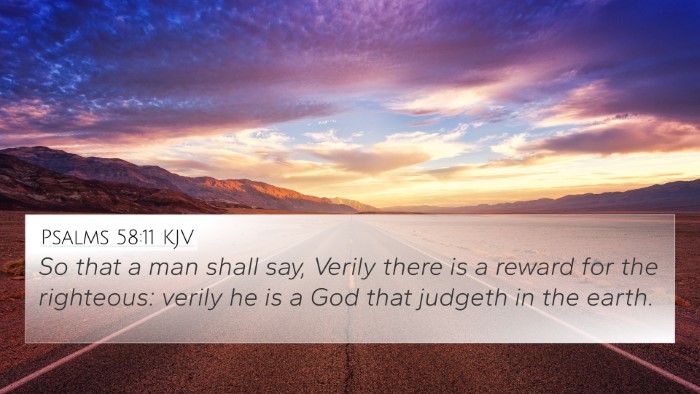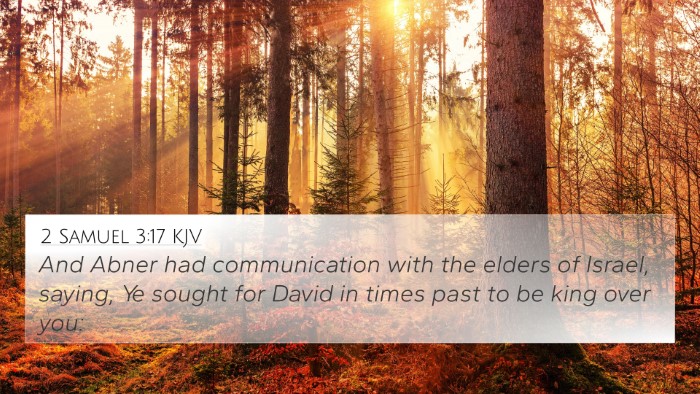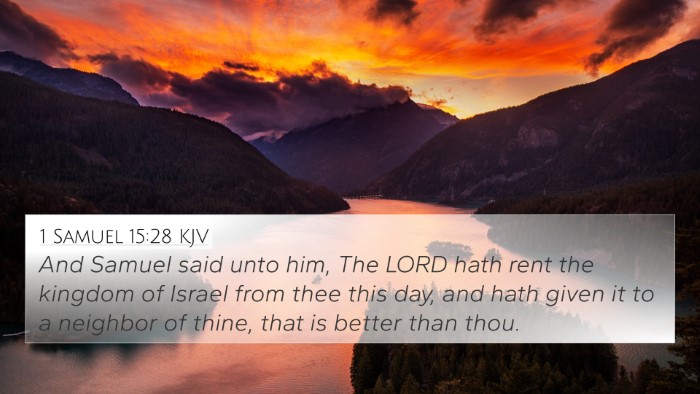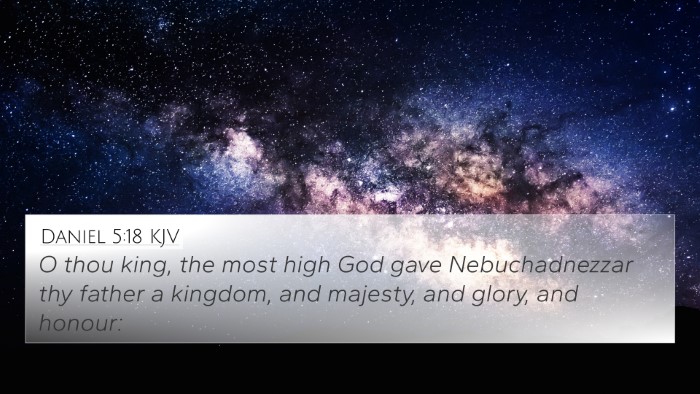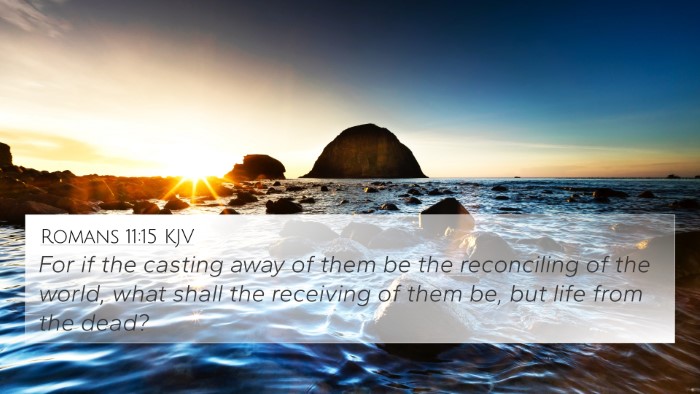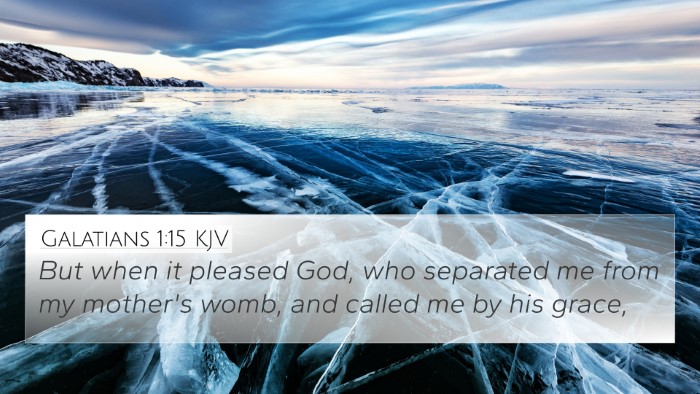Psalms 75:7 - Understanding the Divine Sovereignty
Bible Verse: Psalms 75:7 - "But God is the judge: he putteth down one, and setteth up another."
The central theme of Psalms 75:7 emphasizes the sovereignty and authority of God as the ultimate judge. This verse speaks powerfully about God’s role in governance and His ability to elevate or humble individuals according to His divine will.
Insights from Public Domain Commentaries
This section provides a comprehensive understanding of Psalms 75:7 by synthesizing insights from various respected commentators.
Matthew Henry's Commentary
Matthew Henry discusses how this verse highlights the righteous nature of God's judgment. He points out that God's decisions are not arbitrary but are rooted in His moral order. God's ability to promote or demote is a reflection of His justice, and this encourages believers to trust in God’s divine plan.
Albert Barnes' Notes
Albert Barnes emphasizes that this verse serves as a declaration of God’s authority over all earthly powers. He explains that when God "puts down" one individual and "sets up" another, it serves as a reminder that human success is transient and ultimately governed by God's providential hand. This perspective invites believers to reflect on their reliance upon God rather than personal achievements.
Adam Clarke's Commentary
Adam Clarke elaborates on the concept of divine judgment mentioned in this verse. He indicates that the phrase "putteth down one, and setteth up another" illustrates God's control over nations and leaders. Clarke also connects this understanding to historical examples within the Bible where God intervened in human affairs, asserting the need for humility among those in power.
Key Themes and Interpretations
Several key themes emerge from the analysis of Psalms 75:7:
- The Sovereignty of God: A primary focus of this verse is the sovereignty of God in the affairs of mankind, illustrating that human authority is ultimately subordinate to divine authority.
- Justice and Righteousness: The emphasis on God as the judge reinforces the belief that His decisions are just and right, providing assurance to the oppressed and marginalized.
- Humility in Leadership: The verse serves as a reminder to leaders of the temporal nature of their power, urging them to remain humble and accountable to God.
- Divine Providence: It underscores God's providential hand in history, reminding believers that events unfold according to His purposes.
Bible Cross-References
Here are several Bible verses that relate closely to Psalms 75:7, illustrating the interconnectedness of Scripture and the recurring theme of God’s sovereignty:
- Daniel 2:21: "And he changeth the times and the seasons: he removeth kings, and setteth up kings." This verse directly parallels the message in Psalms 75:7 about God’s control over rulers.
- Romans 13:1: "Let every soul be subject unto the higher powers. For there is no power but of God: the powers that be are ordained of God." This emphasizes God’s authority over all powers.
- 1 Samuel 2:7-8: "The Lord maketh poor, and maketh rich: he bringeth low, and lifteth up." Similar to Psalms 75:7, this highlights God's role in the rise and fall of individuals.
- Psalms 47:2: "For the Lord most high is terrible; he is a great King over all the earth." This shows God's supreme kingship over humanity.
- Proverbs 21:1: "The king’s heart is in the hand of the Lord, as the rivers of water: he turneth it whithersoever he will." This reinforces the idea of Divine influence over leaders.
- Job 12:23: "He increaseth the nations, and destroyeth them: he enlargeth the nations, and straiteneth them again." This echoes the sentiment of God's control over nations, aligning with Psalms 75:7.
- Isaiah 40:23-24: "That bringeth the princes to nothing; he maketh the judges of the earth as vanity." An affirmation of God’s authority over earthly rulers.
- Luke 1:52: "He hath put down the mighty from their seats, and exalted them of low degree." This New Testament verse mirrors the theme of divine elevation and demotion from Psalms 75:7.
Thematic Connections and Inter-Biblical Dialogue
The thematic connections between these verses and Psalms 75:7 indicate a broader narrative within the Bible regarding God's sovereignty and justice. The cross-referencing of biblical texts reveals a unified message about divine oversight in human affairs:
- Trust in God’s Plan: Believers are encouraged to trust God's sovereignty over all circumstances.
- Awareness of Transience: The scripture teaches the fleeting nature of human power.
- Call for Righteousness: God desires righteous leadership that aligns with His will.
Conclusion
Psalms 75:7 serves as a profound reminder of God’s unshakeable sovereignty and His role as the ultimate judge. Analyzing this verse through the lens of respected biblical commentaries enhances our understanding of divine justice and authority.
Exploring the connections between this verse and others deepens our insight into the nature of God’s work in history and in our lives, encouraging us to engage in thoughtful cross-referencing and Bible study.


